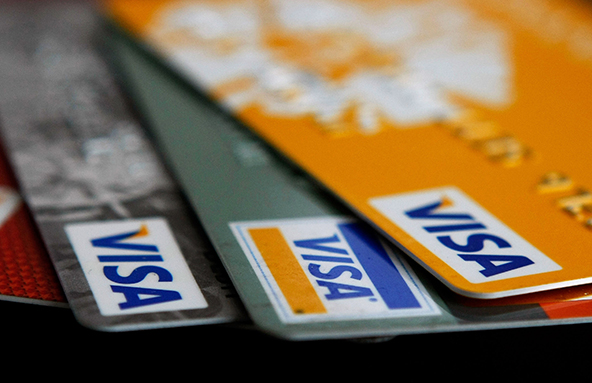What International Businesses Should Do if They Sell to American Consumers

Over the past year or so I’ve worked with several foreign businesses of a good size, trying to build the best possible set-ups to enable each one of them to take the credit cards of their, mostly, American customers and wanted to share with you what I’ve learned. I should preface what I’m about to say by the obligatory clich?? that there is no one-size-fits-all type of solution, but I think there are things international businesses which sell to Americans can do to make credit card acceptance both a simpler and more cost-efficient process.
Also, I will not be going over the basics of payment acceptance — I’ve done this before and in this article I will be focusing exclusively on established international businesses, which have already gone through the process of setting up a merchant account once or twice before and know what is required of them. So let’s get started.
Putting Your Best Foot Forward
Your primary concern when building an international business should be to make it appear as solid and trustworthy to potential partners and critical service providers as possible. Yes, it is true that these are requirements that every business, international or otherwise, should comply with, but the importance of doing so is hugely amplified when dealing with partners in different countries and jurisdictions. There are many good reasons for that, but surely among the most obvious ones is the “lost in translation” issue. When dealing with a partner in your own country, it is much easier for either party to verify the other’s claims, even if the paperwork is less than complete. After all, you probably know where to look and who to call to collect the information you need. However, doing so in a foreign country is much more challenging, even if you speak the language.
So, if you are building an international business — even if its only international component is your customer base, or just a part of it — you should be careful to obtain all of the necessary corporate paperwork, including any business licenses that may be required, and keep it current. If your business has sponsored charitable, sporting or other events, make sure you keep written records. Also, keep your business plan up-to-date and presentable. You may or may not need it for business development purposes, but you will need it when applying for an international merchant account, as I will explain in a minute. Do the same for the r??sum??s of your business’s principal owners. Keep record of your bank statements and make sure that you have a good working relationship with your bank. Finally, make sure that the financial statements of your business and its principal owners are in order; you may need audited financials at some point down the road.
There are other items that could be added to the list, but the point is that your objective should be to make your business appear squeaky clean to anyone who might care to look at it.
Merchant Account Considerations
So let’s assume that you’ve done all I’ve asked of you in the preceding paragraphs. Moreover, let’s assume that your business is now several years old and has grown to a respectable size. Chances are that the original merchant account that you opened up when you first got into business no longer offers the best terms that might be available to you. Alternatively, you may have hit, or come very close to hitting, the upper limit of the monthly transaction volume under your existing processing agreement. Now, one obvious course of action would be to renegotiate the terms of service with your existing service provider and you probably should do that anyway. But here is a question for you: even if your processor did agree to give you a better processing rate and increased your monthly processing limit, would it be a good idea to process all of your growing transaction volume through one service provider? Moreover, how do you know that your renegotiated agreement is really as good as your processor assures you it is? Of course, there is only one way to find out — to check what other processors can give you.
Now, international merchants are almost by default classified as “high-risk“, which means that there are many fewer processors willing to work with them. Moreover, those processors which do specialize in servicing high-risk merchants tend to be quite demanding. That is why it is so important that your business documentation is kept in perfect order and up-to-date. But, as we assumed that you had followed my instructions, you would still have plenty of options to choose from, both domestically and internationally. And this is where it gets interesting.
See, if you have grown to a sufficiently large size and the U.S. share of your customer base is big enough, say 50 percent or more, it is very likely that a U.S.-based processor would be the best option available to you. To begin with, your settlement currency is probably U.S. dollars, which you have to convert into your own country’s currency anyway. Moreover, if the U.S. accounts for such a big chunk of your sales, it is probably a good idea to establish some kind of a presence there — a U.S. corporation, bank account and office, even if it is only of the one-person variety. And if you do that, setting up a U.S.-based merchant account is the natural next step and will bring some important advantages. To begin with, as your business is well-established, has all of the necessary paperwork and is doing a respectable volume, your application would be reviewed very quickly and you would get better pricing terms than you could get elsewhere. Moreover, while you may still be required to agree to a reserve, your funds would be deposited daily via ACH, so you wouldn’t be charged any wire transfer fees, which are often quite excessive. Furthermore, U.S. processors tend to provide solid customer support, so any issues you might have, and there always are issues, would be quickly resolved.
The Takeaway
So setting up a merchant account in the U.S. offers many advantages when your customers are also there. At the very least, you should consider the option and request proposals. Just keep in mind that your business should have grown big enough, before you explore the U.S. merchant account option. See, it is unlikely that a U.S. processor would consider providing services to a high-risk foreign business if its monthly processing volume is less than $100,000. And if it does, the proposed terms might not be all that good. On the other hand, if your volume is high enough to justify establishing a U.S. presence, and your paperwork is in order, you could expect to receive some pretty good service proposals.
Image credit: Bankirnews.ru.


